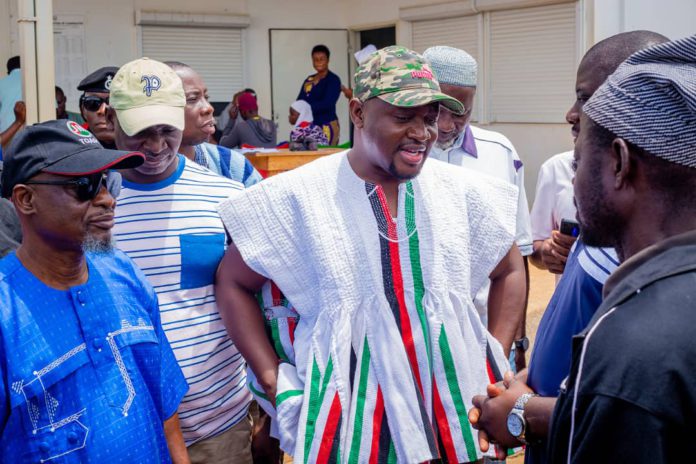Tamale North Member of Parliament, Alhassan Suhuyini, has accused the Electoral Commission (EC) of attempting to suppress votes as part of a grand but misguided scheme to rig the 2024 December 7 Elections.
Mr Suhuyini claims that the EC suppressed around 50,000 votes, which amounts to roughly 250 votes per constituency.
His concerns are expressed through a post on his social media pages, where he urges political parties to stay vigilant and not allow the EC’s alleged move to go unchallenged.
Mr Suhuyini is critical of the EC’s failure to conduct last year’s Limited Voter Registration exercise across all polling centers, opting instead for registration only at its district offices.
He argues that, this decision prevented many potential registrants from participating, ultimately disenfranchising them for the upcoming December 2024 general elections.
The lawmaker’s accusation comes amidst growing tension surrounding the fairness and transparency of the electoral process.
According to him, this revelation for vigilance underscores the importance of ensuring that all eligible voters have the opportunity to register and cast their votes without hindrance or suppression.
In his statement, Mr Suhuyini highlights the responsibility of political parties to safeguard the democratic process and ensure that every vote counts. He views the EC’s alleged actions as a threat to the integrity of the electoral system and calls for collective action to address these concerns.
“Among others, the Electoral Commission is working to suppress votes as part of its misguided aim of rigging the December polls.
The EC will start a limited registration exercise tomorrow, 7th May, 2024.”
“Last September 2023, after many years of no registration, they conducted a similar exercise. For the first time the registration was conducted at their District Offices across the country, instead of electoral areas and polling stations as it then was.”
“Despite the difficulties, potential voters traveled longer, sometimes uncomfortable distances and sometimes slept in the open for days before their data got captured and in most cases the political parties at high cost facilitated and helped to ease the burdens of these potential voters,” an excerpt of his post said.

